#Farming - Agriculture
Text
Components Of The Farming Agricultural Practices You Need To Be Aware Of

Agriculture or farming is an ages-old practice, which is crucial for human beings for their nutrition. It has undergone considerable change over the centuries, and with learning and technological advancement, it is more viable and eco-friendly today. Read More: https://medium.com/@budobudosuk/components-of-the-farming-agricultural-practices-you-need-to-be-aware-of-883f98269cde
0 notes
Text
dear mojang
add more crops in minecraft im begging you im on my hands and knees give us tomatoes give us onions give us strawberries give us peppers
add more food recipes please give us sandwiches give us more pastries give us pudding or some shit
sincerely, the farmer of every minecraft server
#'just play it modded-' NO I WANT IT IN THE ACTUAL GAME#I WANT MORE FARMING I WANT MROE FOOD#I DONT WANT MORE MOBS OR MINERALS OR PLANTS I WANT CROPS I WANT RECIPES#we need an agriculture update i would go crazy over that#mojang please#please#miles rambles#minecraft
20K notes
·
View notes
Text
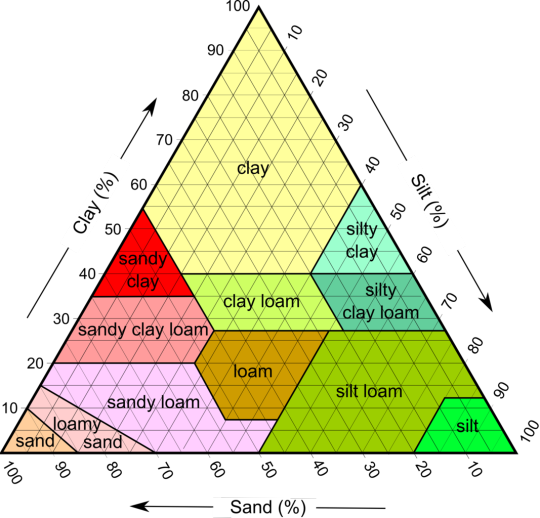
#i just kinda want to see what happens#kets kerfuffle#soil#dirt#farming#geology#agriculture#rocks#science
28K notes
·
View notes
Link
Soil health is a vital aspect of agriculture, and its significance cannot be overemphasized. As the world’s population grows, the demand for food production also increases, which puts a strain on the soil. The health of the soil is crucial for plant growth, and ultimately, for ensuring food security. Therefore, farmers need to prioritize soil health to achieve sustainable and profitable agricultural production.
0 notes
Text
Legit though, we should start turning ecosystem restoration and work to make our world more tolerant to the effects of climate change into annual holidays and festivals
Like how just about every culture used to have festivals to celebrate the beginning of the harvest or its end, or the beginning of planting, or how whole communities used to host barn raisings and quilting bees - everyone coming together at once to turn the work of months or years into the work of a few days
Humble suggestions for festival types:
Goat festival
Besides controlled burns (which you can't do if there's too much dead brush), the fastest, most effective, and most cost-efficient way to clear brush before fire season - esp really heavy dead brush - is to just. Put a bunch of goats on your land for a few days!
Remember that Shark Tank competitor who wanted to start a goat rental company, and everyone was like wtf? There was even a whole John Oliver bit making fun of the idea? Well THAT JUST PROVES THEY'RE FROM NICE WET PLACES, because goat rental companies are totally a thing, and they're great.
So like. Why don't we have a weekend where everyone with goats just takes those goats to the nearest land that needs a ton of clearing? Public officials could put up maps of where on public lands grazing is needed, and where it definitely shouldn't happen. Farmers and people/groups with a lot of acres that need clearing can post Goat Requests.
Little kids can make goat-themed crafts and give the goats lots of pets or treats at the end of the day for doing such a good job. Volunteers can help wrangle things so goats don't get where they're not supposed to (and everyone fences off land nowadays anyway, mostly). And the goats, of course, would be in fucking banquet paradise.
Planting Festival and Harvest Festival
Why mess with success??? Bring these back where they've disappeared!!! Time to swarm the community gardens and help everyone near you with a farm make sure that all of their seeds are sown and none of the food goes to waste in the fields, decaying and unpicked.
And then set up distribution parts of the festival so all the extra food gets where it needs to be! Boxes of free lemons in front of your house because you have 80 goddamned lemons are great, but you know what else would be great? An organized effort to take that shit to food pantries (which SUPER rarely get fresh produce, because they can't hold anything perishable for long at all) and community/farmer's markets
Rain Capture Festival
The "water year" - how we track annual rainfall and precipitation - is offset from the regular calendar year because, like, that's just when water cycles through the ecosystems (e.g. meltwater). At least in the US, the water year is October 1st through September 30th of the next year, because October 1st is around when all the snowmelt from last year is gone, and a new cycle is starting as rain begins to fall again in earnest.
So why don't we all have a big barn raising equivalent every September to build rain capture infrastructure?
Team up with some neighbors to turn one of those little grass strips on the sidewalk into a rain-garden with fall-planting plants. Go down to your local church and help them install some gutters and rain barrels. Help deculvert rivers so they run through the dirt again, and make sure all the storm drains in your neighborhood are nice and clear.
Even better, all of this - ESPECIALLY the rain gardens - will also help a ton with flood control!
I'm so serious about how cool this could be, yall.
And people who can't or don't want to do physical stuff for any of these festivals could volunteer to watch children or cook food for the festival or whatever else might need to be done!
Parties afterward to celebrate all the good work done! Community building and direct local improvements to help protect ourselves from climate change!
The possibilities are literally endless, so not to sound like an influencer or some shit, but please DO comment or reply or put it in the notes if you have thoughts, esp on other things we could hold festivals like this for.
Canning festivals. "Dig your elderly neighbors out of the snow" festivals. Endangered species nesting count festival. Plant fruit trees on public land and parks festival. All of the things that I don't know anywhere near enough to think of. Especially in more niche or extreme ecosystems, there are so many possibilities that could do a lot of good
#climate change#climate action#climate crisis#climate hope#solarpunk#hopepunk#hope posting#community building#ecosystem#ecosystem restoration#forest fire#fire prevention#flood#flood prevention#harvest#harvest festival#regenerative agriculture#modern farming#water conservation#meteorology#festival#not news#hope#climate optimism
3K notes
·
View notes
Text
The 4 Big Meat Packers In America Are Making A Move To Bankrupt Small Farms In America Starting In August
“This is a way that they're gonna be trying to force us out”
“The big 4 packers are killing the American cattle industry right now. Projected by August, each cattle rancher that is selling their animal is gonna be making $30 less per 100 pounds on that market ready animal.
- The American cattle rancher makes about 30% of every dollar earned on that animal
- With this gonna be set in place, this is gonna take us down into the twenties.
This is gonna be a real scary place for the American cattle rancher.
If they can't make a profit or make a living off of what they're selling, their ranches are gonna be put up for sale.
This is a way that they're gonna be trying to force us out.
- And not only that, the corrupt thing is they're gonna be marking everything up $30 to every 100 pounds that they're making in return.
So with that being said, guys, we need to get back to buying local, supporting our local people. And as always, buy American and buy local.”
#No Farms - No Food#No Farmers - No Food - No Future#Food Security#Advocate for Agriculture#Support Local Farmers#Like Minded People#Stuff#Do Some Research#Make Tumblr ★ Great Again
806 notes
·
View notes
Video
youtube
25 IMPORTANT BENEFITS OF FARMING | 25 BENEFITS OF AGRICULTURE | 25 ADVAN...
0 notes
Text
RPTU University of Kaiserslautern-Landau has shown for the first time, in a joint study with BOKU University, that permaculture brings about a significant improvement in biodiversity, soil quality and carbon storage.
In view of the challenges of climate change and species extinction, this type of agriculture proved to be a real alternative to conventional cultivation—and reconcile environmental protection and high yields.
Permaculture uses natural cycles and ecosystems as blueprint. Food is produced in an agricultural ecosystem that is as self-regulating, natural and diverse as possible. For example, livestock farming is integrated into the cultivation of crops or the diversity of beneficial organisms is promoted in order to avoid the use of mineral fertilizers or pesticides.
In a study, published in the journal Communications Earth & Environment, researchers from RPTU and BOKU have now, for the first time, comprehensively investigated the effects of this planning and management concept on the environment.
[...]
"Permaculture appears to be a much more ecologically sustainable alternative to industrial agriculture," said Julius Reiff . At the same time, the yields from permaculture are comparable to those of industrial agriculture, as the researchers' not yet published data shows.
"In view of the challenges of climate change and biodiversity loss, the observed improvements would represent a real turnaround when applied to larger areas," says ecosystem analysis expert Martin Entling from RPTU.
4 July 2024
425 notes
·
View notes
Text
Making Desert Land Fertile with Water Bunds
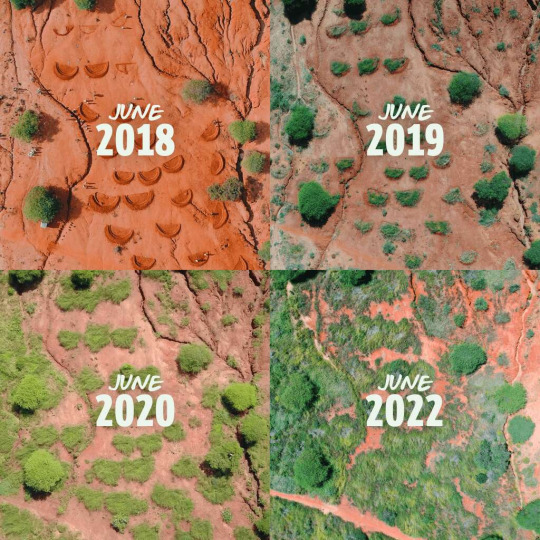
#permaculture#regenerative ag#regenerative agriculture#agriculture#farming#gardening#how to make soil more fertile#how to turn a desert into fertile land#soil#soil fertility#organic farming#organic gardening#water harvesting
3K notes
·
View notes
Text
Every once in a while I’ll see some posts about everyone should become vegan in order to help the environment. And that… sounds kinda rude. I’m sure they don’t mean to come off that way but like, humans are omnivores. Yes there are people who won’t have any animal products be it meat or otherwise either due to personal beliefs or because their body physically cannot handle it, and that’s okay! You don’t have to change your diet to include those products if you don’t want to or you physically can’t.
But there’s indigenous communities that hunt and farm animals sustainably and have been doing so for generations. And these animals are a primary source of food for them. Look to the bison of North America. The settlers nearly caused an extinction as a part of a genocide. Because once the Bison were gone it caused an even sharper decline of the indigenous population. Now thankfully Bison did not go extinct and are actively being shared with other groups across America.
Now if we look outside of indigenous communities we have people who are doing sustainable farming as well as hunting. We have hunting seasons for a reason, mostly because we killed a lot of the predators. As any hunter and they will tell you how bad the deer population can get. (Also America has this whole thing about bird feathers and bird hunting, like it was bad until they laid down some laws. People went absolutely nuts on having feathers be a part of fashion like holy cow.)
We’re slowly getting better with having gardens and vertical farms within cities, and there’s some laws on being able to have a chicken or two at your house or what-have-you in the city for some eggs. (Or maybe some quails since they’re smaller than chickens it’s something that you’d might have to check in your area.) Maybe you would be able to raise some honey bees or rent them out because each honey tastes different from different plants. But ultimately when it comes to meat or cheese? Go to your local farmers. Go to farmers markets, meet with the people there, become friends, go actively check out their farm. See how the animal lives are and if the farmer is willing, talk to them about sustainable agriculture. See what they can change if they’re willing. Support indigenous communities and buy their food and products, especially if you’re close enough that the food won’t spoil on its way to you. (Like imagine living in Texas and you want whale meat from Alaska and you buy it from an indigenous community. I would imagine that would be pretty hard to get.)
Either way everything dies in the end. Do we shame scavengers for eating corpses they found before it could rot and spread disease? Do we shame the animals that hunt other animals to survive? Yes factory farming should no longer exist. So let’s give the animals the best life we can give them. If there’s babies born that the farmer doesn’t want, give them away to someone who wants them as a pet. Or someone who wants to raise them for something else. Not everyone can raise animals for their meat. I know I can’t I would get to emotionally attached. I’d only be able to raise them for their eggs and milk.
Yeah this was pretty much thrown together, and I just wanted to say my thoughts and throw them into the void. If you have some examples of sustainable farming/agriculture, please share them because while I got some stuff I posted from YouTube, I’m still interested to see what stuff I might’ve missed!
#solarpunk#farming#hunting#agriculture#sustainability#sustainable farming#sustainable agriculture#like Rewilding farm land is pretty interesting and trying to replicate an ecosystem with farm animals but also allowing wild animals#to make homes in the rewild farm land is pretty cool#and I have an absolute love for food/garden forests#and hydroponics have shown to be really great for communities in the winter time and they want to have fresh produce#all sorts of cool stuff
919 notes
·
View notes
Text
I've been researching how to unfuck our food system in the USA, and its so frustrating to learn about how we are locked into this deeply inefficient, destructive system that is running itself into the ground because everything is controlled by enormous corporations.
I agree that we need to switch to more plant-based diets
BUT i think this is something that will, to some extent, naturally happen if we fix the horrible homogenization of our food system
The USA is full of highly productive, edible plants that are already part of the natural ecosystem that we don't eat
example 1: Acorns. Once you cook the tannins out, acorns are edible. They were once a staple food for humans. You can make them into flour and all sorts of things, and oak trees are incredibly productive
example 2: Amaranth. It's more productive, easier to grow, and healthier than wheat and corn, very high in protein. It also was once a staple crop.
However, farmers need money or they will lose everything, so they plant crops based on what the big companies they sell to will buy.
Big companies only want to buy crops that have the highest chance of making a profit.
Unfamiliar foods don't make as much profit because people are not sure about trying them.
This means that farmers are mostly stuck planting the same, like, 3 things that big companies feel most comfy about.
I hate this so much. I hate it I hate it I hate it I hate it
it's absolutely infuriating how incredibly solvable our food system problems are, and how it's all going to hell because companies are like "okay but 5.5% more profits go brrrrrrrr"
3K notes
·
View notes
Text

agrarian knight
#illustration#art#character design#artists on tumblr#scifi#sketch#comic#concept art#my art#alien#farming#farmer#dnd#ttrpg#rpg#knight#agriculture#scythe#fromsoft#elden ring#darksouls#fantasy
317 notes
·
View notes
Photo
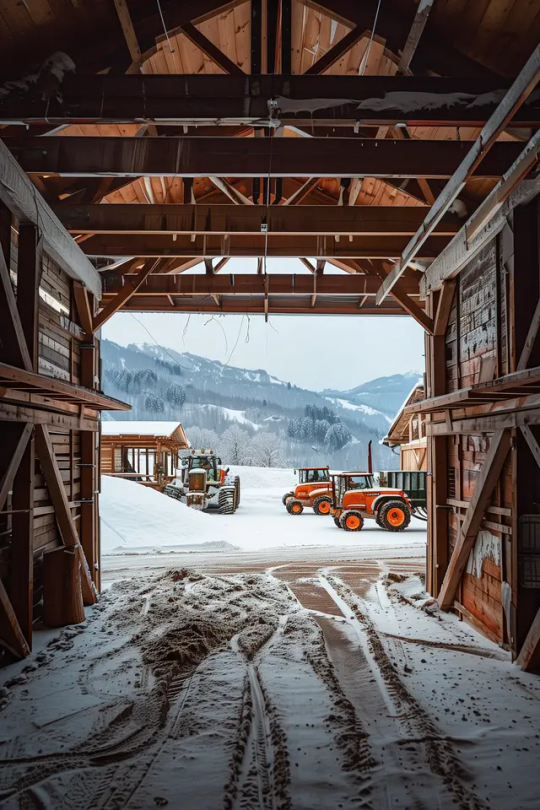
Credit: Backroad-life
#farm#farming#farm life#rural aesthetic#rural#ruralcore#ranch#ranch life#ranching#agriculture#tractors#barn#barnyard#small town#rural america#midwest#western#homestead#countryside#winter#snow#winterscape#tractor#cottagecore#cottage country#farmcore#rural life#nature
281 notes
·
View notes
Text
hey do me a favor and reblog this
533 notes
·
View notes
Text
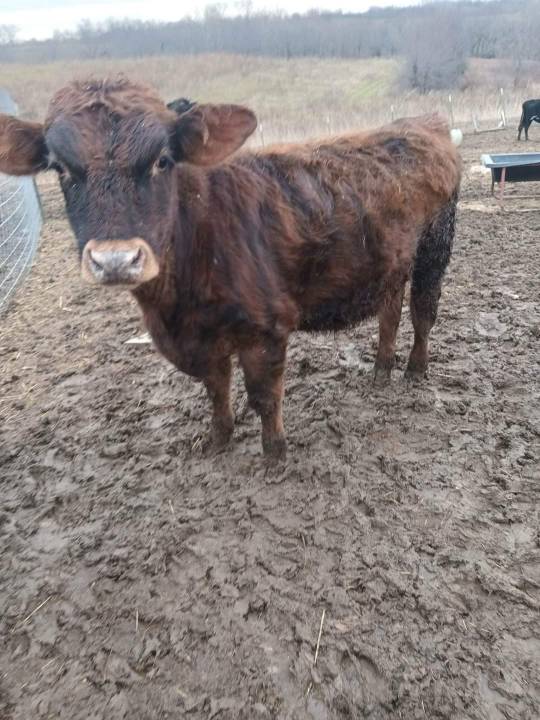
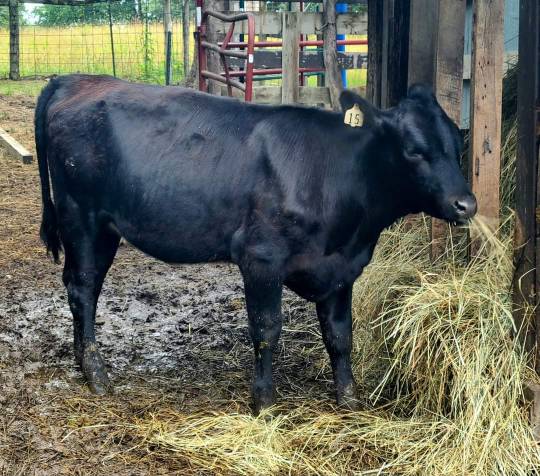
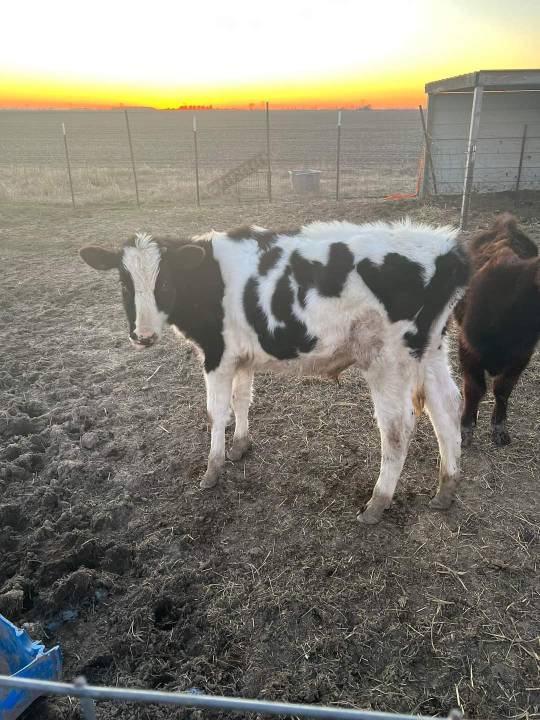
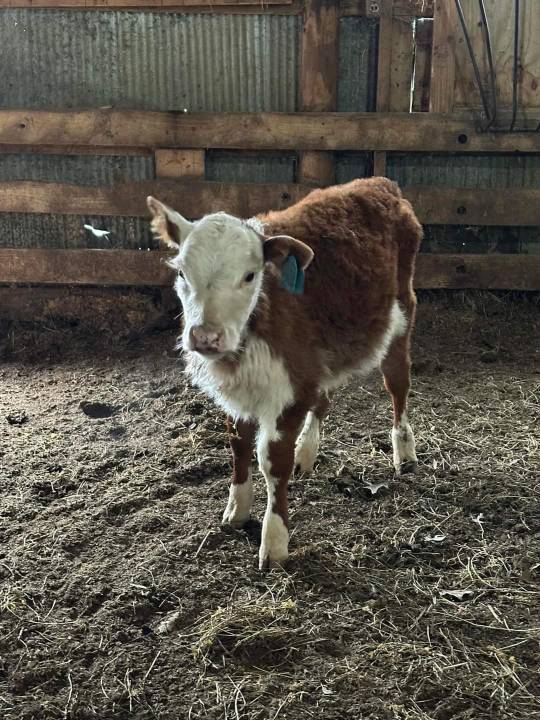

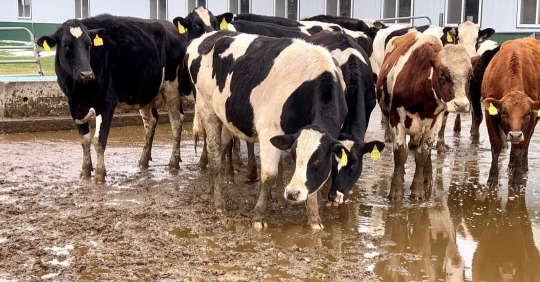
You may not want to hear this, but none of these cows in the above pictures are being neglected or abused. That last cropped picture is actually from a bigger farm as well during the storms happening during the Loon fallout event.
Mud is a completely normal part of raising livestock, especially in places where it gets wet and rainy during different parts of the year. Even the driest climates will experience a build-up of manure and mud around feeding and watering locations since livestock likes to hang out there for obvious reasons.
The idyllic pictures you see of cows in green pastures likely have a rotational grazing setup or large amounts of land, which isn't possible or feasible for most small farmers. Pastures in this state are a common side effect of having large livestock, but even chickens, goats, and dogs can turn a pasture into dirt if the pasture can't get rest. It doesn't mean the animals are getting neglected or abused, and anyone who says otherwise is likely coming from a place of privilege or ignorance.
The suicide rate for agricultural workers is five times higher than the general population. Farmers experience more debt, indignity, and isolation compared to the general population and what sucks is when I talk about this I get replies that are like "just choose a different profession" when these people are how your getting fed. Food does not magically manifest in the grocery store it comes from farmers, and farmer depression is a global crisis.
I'm sure there are some people who are uncomfortable with those photos but I want you to sit in that discomfort and realize that when you buy beef from the store it's not unlikely that that cow stood on a muddy floor and that cows have been standing in muddy pastures for thousands of years.
This isn't a post bashing rotational grazing and other forms of pasture management. I just think it's ignorant to assume these animals are being neglected because their pasture is muddy and that their owners arent always looking for ways to change that. This stuff does make it harder for people to share their troubles or profession. The cows above likely have less hoof issues then cows only on sand, metal grates, or concrete.

Memes like the above exist for a reason.
322 notes
·
View notes
Note
hey, how do you cope with people saying we only have a small amount of time left to stop the worst effects of climate change? no matter how hopeful and ok i am, that always sends me back into a spiral :(
A few different ways
1. The biggest one is that I do math. Because renewable energy is growing exponentially
Up until basically 2021 to now, all of the climate change models were based on the idea that our ability to handle climate change will grow linearly. But that's wrong: it's growing exponentially, most of all in the green energy sector. And we're finally starting to see proof of this - and that it's going to keep going.
And many types of climate change mitigation serve as multipliers for other types. Like building a big combo in a video game.
Change has been rapidly accelerating and I genuinely believe that it's going to happen much faster than anyone is currently predicting
2. A lot of the most exciting and groundbreaking things happening around climate change are happening in developing nations, so they're not on most people's radars.
But they will expand, as developing nations are widely undergoing a massive boom in infrastructure, development, and quality of life - and as they collaborate and communicate with each other in doing so
3. Every country, state, city, province, town, nonprofit, community, and movement is basically its own test case
We're going to figure out the best ways to handle things in a remarkably quick amount of time, because everyone is trying out solutions at once. Instead of doing 100 different studies on solutions in order, we get try out 100 (more like 10,000) different versions of different solutions simultaneously, and then figure out which ones worked best and why. The spread of solutions becomes infinitely faster, especially as more and more of the world gets access to the internet and other key infrastructure
4. There's a very real chance that many of the impacts of climate change will be reversible
Yeah, you read that right.
Will it take a while? Yes. But we're mostly talking a few decades to a few centuries, which is NOTHING in geological history terms.
We have more proof than ever of just how resilient nature is. Major rivers are being restored from dried up or dead to thriving ecosystems in under a decade. Life bounces back so fast when we let it.
I know there's a lot of skepticism about carbon capture and carbon removal. That's reasonable, some of those projects are definitely bs (mostly the ones run by gas companies, involving carbon credits, and/or trying to pump CO2 thousands of feet underground)
But there's very real potential for carbon removal through restoring ecosystems and regenerative agriculture
The research into carbon removal has also just exploded in the past three years, so there are almost certainly more and better technologies to come
There's also some promising developments in industrial carbon removal, especially this process of harvesting atmospheric CO2 and other air pollution to make baking soda and other industrially useful chemicals
As we take carbon out of the air in larger amounts, less heat will be trapped in the atmosphere
If less heat is trapped in the atmosphere, then the planet will start to cool down
If the planet starts to cool down, a lot of things will stabilize again. And they'll probably start to stabilize pretty quickly
#Anonymous#ask#me#carbon removal#carbon sequestration#carbon emissions#air pollution#forests#afforestation#wetlands#regenerative farming#regenerative agriculture#agriculture#renewable energy#renewable electricity#solar power#wind power#climate change#climate anxiety#climate resilience#good news#hope#hope posting
5K notes
·
View notes